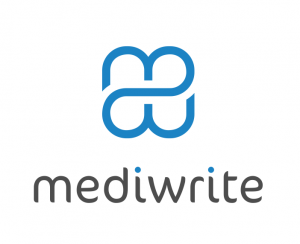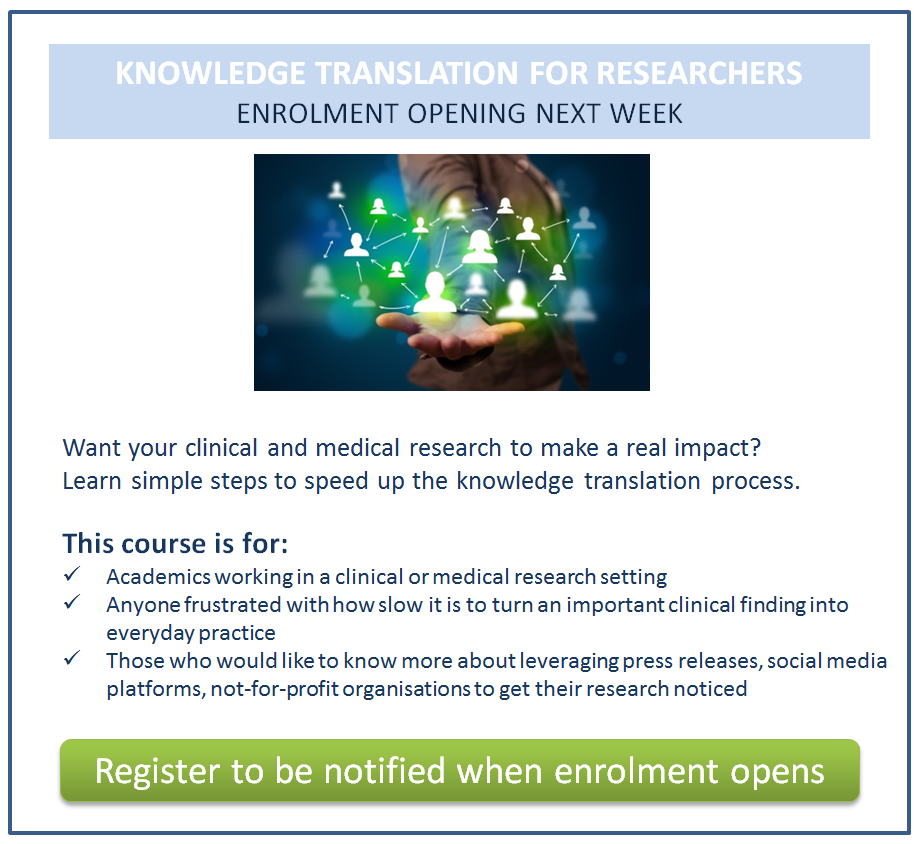Medical writers are catalysts in knowledge translation
by Ruth Hadfield, PhD
Recently I watched Simon Sinek’s inspiring TedTalk about how great organisations ‘Start with Why’. It got me thinking. I love being a freelance medical writer. I really enjoy researching the medical literature and working on a wide variety of topics and I have no doubt that I bore my friends by constantly updating them about the latest medical research findings.
But Why? Why do I work as a medical writer? As I pondered this question I realised that I work as a medical writer because I really want to help people get their research findings ‘out there’. Out into the world where doctors, health practitioners and the general public have access to the evidence and can act on it. Out where valuable research can actually make a difference and change the way things are done. Where it can improve the health of people, improve safety and prevent illness. That is why.
It is well known that there is an unacceptable delay in getting research translated into everyday clinical practice. Knowledge to practice gaps exist in all areas of medicine and there has been a real struggle to identify ways to bridge these gaps. Multiple studies have found that it takes an average of 17 years for a research finding to make it into everyday clinical practice. (1) It is well accepted that knowledge translation (or the translation of research into clinical practice (TRIP) as it is often called) is a process that goes from awareness through to acceptance and finally to adoption. Medical writers work in all three domains to help medical practitioners learn about new developments, accept them as being valid and adopt them into everyday clinical practice. (2)

In the process of knowledge translation, also called bench-to-bedside or knowledge mobilisation, it is steps 4 & 5 in the figure above that seem to be the sticking points: ‘telling others about results’ and ‘changing practice’. Medical writers are key facilitators in bridging the evidence-practice gap. Medical writers help bridge this gap in multiple ways. We gather the evidence and communicate it to health practitioners. We speed up the process of a research finding turning into a news piece.
In the words of Hillary Clinton:
“Now, look, I – I like to look at evidence. I plead to that. I think evidence is important when you’re making decisions that affect other people’s lives.”
And I am sure all medical practitioners want to use the most recent and up to date evidence when they are making decisions. As a medical writer I help translate research into practice and I do it because it makes a difference. Medical writers act as catalysts – we speed up the knowledge translation process and enhance research impact.
On a day to day basis medical writing varies enormously. For example, some days I may be helping a professor write and edit their research into a publishable academic manuscript. Other days I am helping a global not-for-profit keep published research on a topic up to date and presented in an open-access way that health practitioners around the world can access. Sometimes I spend a day or two making sure that when a room full of medical experts meet for the day their thoughts and decisions are properly recorded and disseminated. Occasionally I go to a conference, listen to researchers present their latest findings and turn their findings into news articles for physicians and pharmacists. All of these typical tasks carried out by medical writers catalyse the research knowledge translation process.
So thanks Simon Sinek for helping me crystallise my thoughts about why I do what I do and why I love what I do.
References
(1) Morris et al, 2011, JRSM Vol 104, Issue 12, 2011
(2) Green et al, 2005, J Am Board Fam Med, Vol. 18 no. 6 541-545


